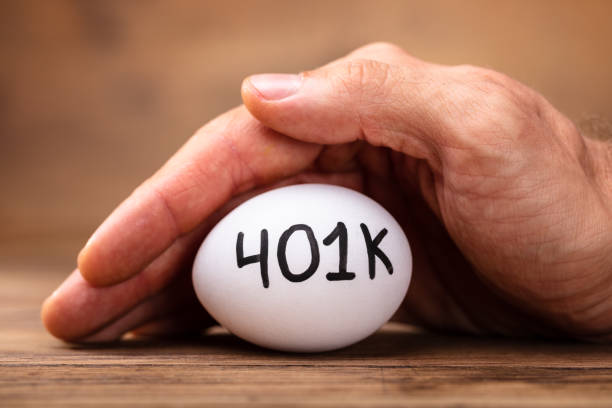What You Need to Know

As retirement approaches, many individuals face a crucial decision regarding their 401(k) plans. While these accounts are designed to help people save for retirement, there are risks associated with keeping a 401(k) after retirement that warrant careful consideration. In this post, we'll explore these risks and offer guidance on how to manage them.
1. Market Volatility: One of the primary risks of keeping a 401(k) after retirement is exposure to market volatility. Your 401(k) investments may still be subject to market fluctuations, which can affect the value of your account. If a market downturn occurs shortly after retirement, it can significantly impact your retirement income.
Mitigation: Consider diversifying your investments, shifting toward more conservative options, or exploring products like annuities that provide a guaranteed income stream, helping shield you from market volatility.
2. Required Minimum Distributions (RMDs): After reaching the age of 72 (or 70½ for those born before July 1, 1949), the IRS mandates that you begin taking annual withdrawals from your 401(k). These Required Minimum Distributions (RMDs) can impact your tax liability and potentially deplete your retirement savings faster than anticipated.
Mitigation: Plan for RMDs by working with a financial advisor to determine the most tax-efficient strategy. Consider using RMDs for living expenses or reinvesting them in a taxable account.
3. Limited Investment Options: 401(k) plans often provide a limited selection of investment options compared to other retirement accounts. This can restrict your ability to adjust your investments according to your post-retirement financial goals.
Mitigation: Explore rolling over your 401(k) into an Individual Retirement Account (IRA) to gain access to a broader range of investment choices and greater control over your portfolio.
4. Maintenance Fees: Many 401(k) plans charge administrative fees, which can eat into your retirement savings over time. These fees may continue even after retirement.
Mitigation: Evaluate the fees associated with your 401(k) and consider rolling it into an IRA with lower fee options if it makes financial sense.
5. Inheritance Planning: If you wish to pass on your retirement savings to heirs, a 401(k) might not be the most efficient vehicle. Beneficiaries may face taxes and restrictions on inherited 401(k) funds.
Mitigation: Discuss your inheritance goals with an estate planning attorney and explore options such as converting your 401(k) into a Roth IRA, which has more favorable inheritance rules.
In conclusion, while keeping a 401(k) after retirement can offer certain advantages, it's crucial to be aware of the associated risks. Careful planning, diversification, and a clear understanding of your financial goals are essential in managing these risks effectively. Consulting with a qualified financial advisor or retirement planner can help you make informed decisions and ensure a secure and comfortable retirement. Remember that financial decisions in retirement should align with your unique circumstances and aspirations.
